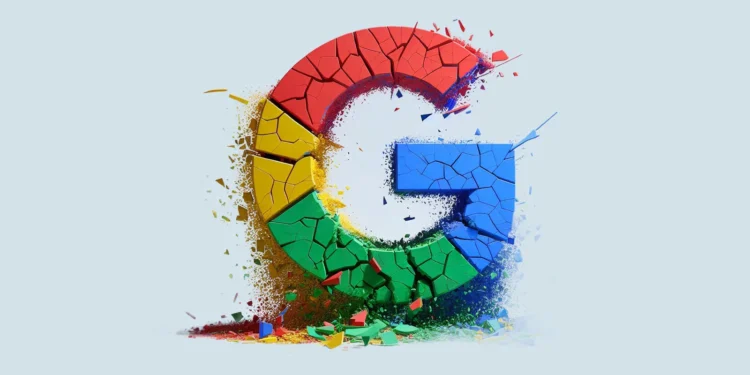As we edge closer to 2025, the digital landscape is poised for dramatic shifts, with Google at its epicenter. In a candid conversation at the New York Times DealBook Summit, Google CEO Sundar Pichai shared insights that foreshadow a significant transformation in how we interact with Google Search, amidst evolving discussions about the role of artificial intelligence (AI) in reshaping our digital interactions.
During the interview, Pichai emphasized that we are merely at the “earliest stages of a profound shift,” a testament to Google’s pioneering efforts in AI. His vision for Google Search in 2025 is not just an enhancement of functionality but a reinvention of capabilities, promising to tackle more complex queries than ever before.
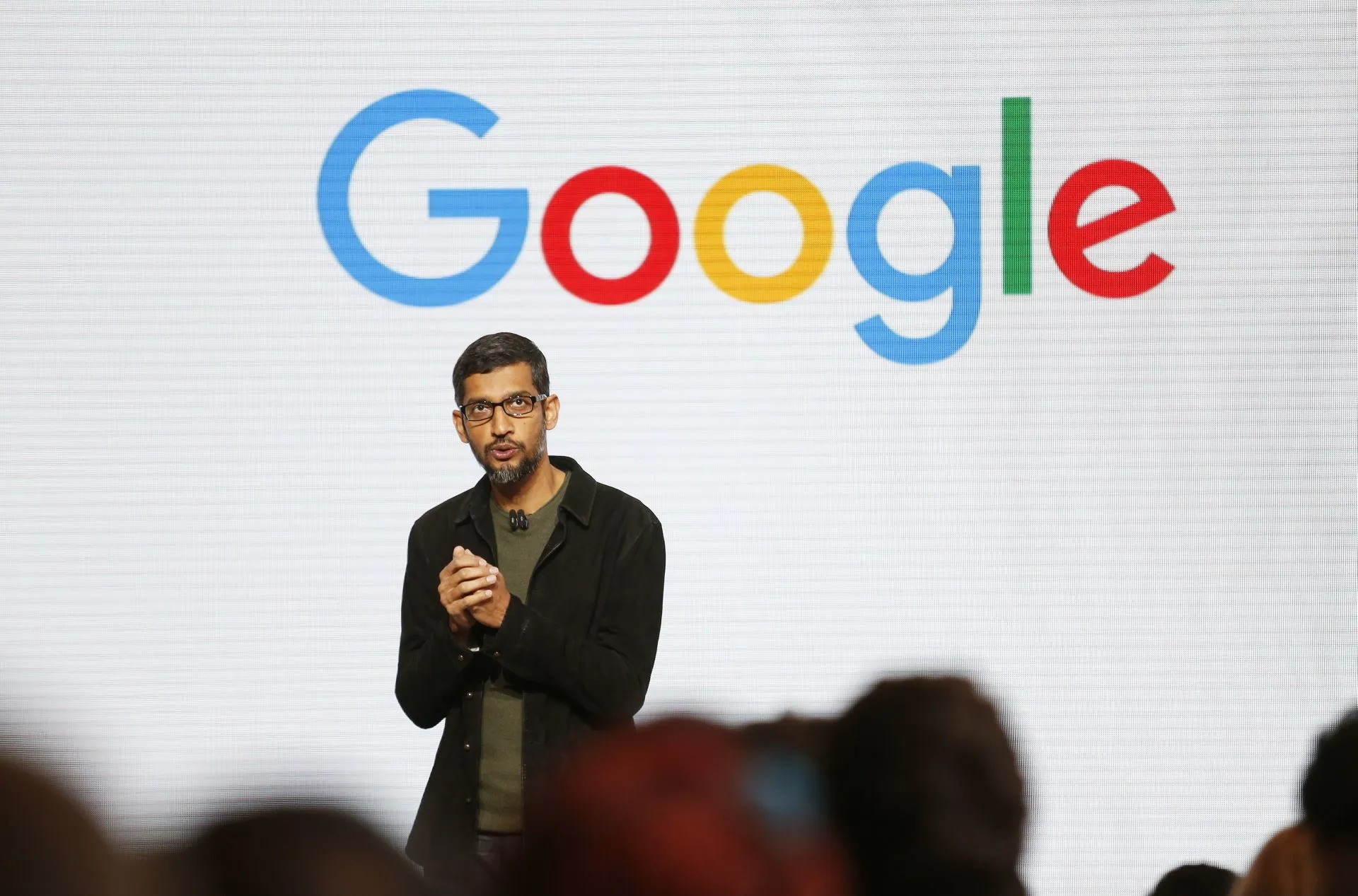
Google’s Commitment to AI: Beyond the Blue Link Economy
The discussion also ventured into the strategic dynamics of Google’s AI deployment, especially in protecting the so-called “blue link economy.” This refers to the traditional search results links, which are a significant revenue source for Google. Pichai explained that Google’s AI advancements, such as BERT and MUM, have been crucial in bridging gaps in search quality, thereby enhancing the multimodal capabilities of Google Search.
“AI has been a part of Google since 2012,” Pichai noted, highlighting its longstanding integration into various facets of search and digital content understanding. This integration has led to substantial improvements in how search queries are processed and understood, significantly altering the search landscape to favor depth and context over mere keyword matching.
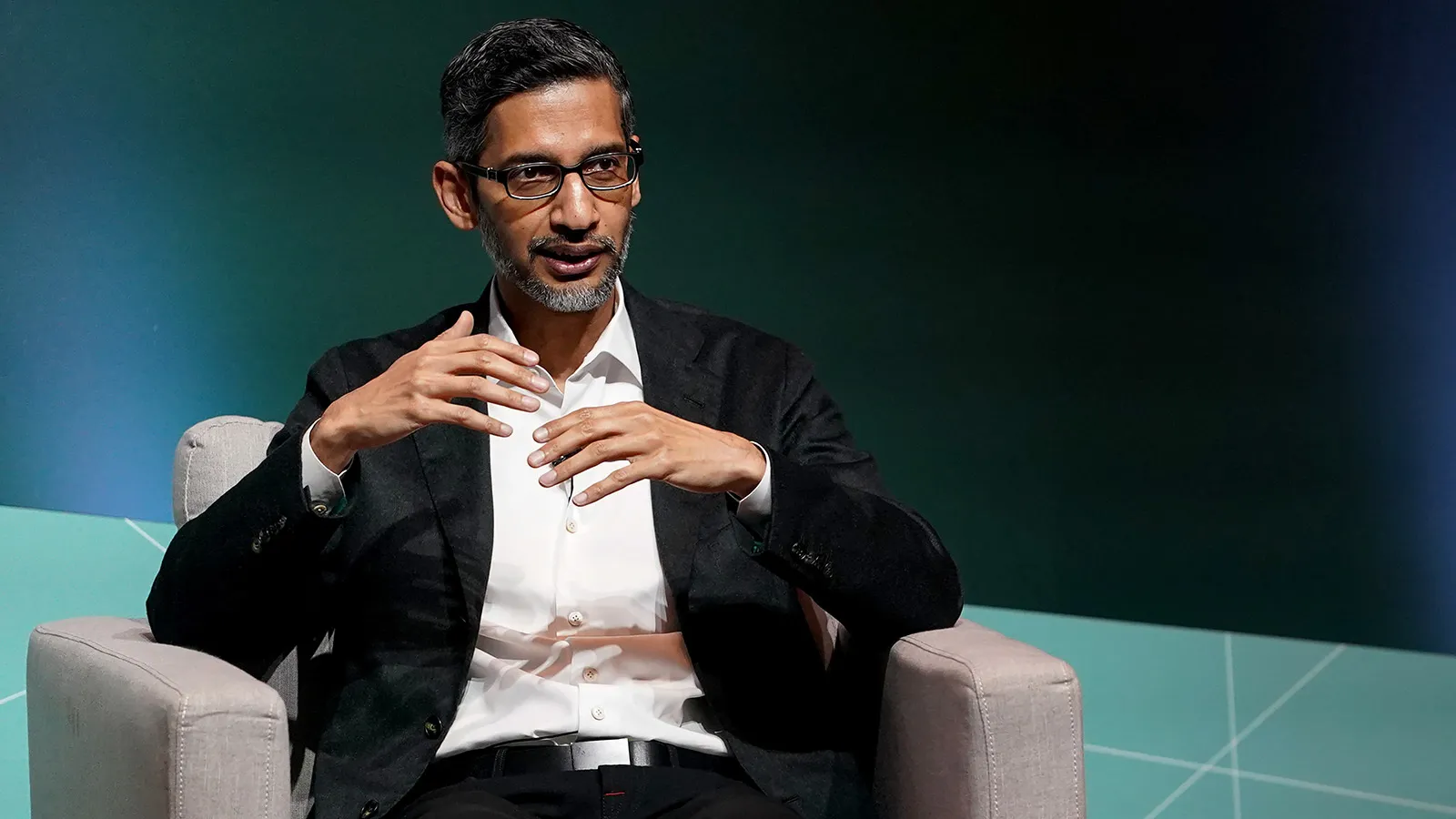
Addressing Challenges: The Creator Economy and Content Authenticity
The conversation took a more nuanced turn when Pichai was questioned about the impact of these technologies on content creators. The concern is that as AI becomes adept at generating and curating content, the value ascribed to original human-created content might diminish. Pichai’s response highlighted a delicate balance, acknowledging the necessity of supporting the creator ecosystem while also advancing technological innovation.
“We spend a lot of time thinking about the traffic we send to the ecosystem,” Pichai reassured. His remarks underline Google’s awareness of its pivotal role in driving audience traffic to content creators, from news outlets to independent bloggers, and its responsibility in fostering a healthy digital content environment.
Moreover, Pichai touched upon Google’s efforts to compensate creators through mechanisms like YouTube’s Content ID system. This system aims to ensure that copyright owners are remunerated for their content, reflecting an ongoing commitment to fair use and fair compensation within the evolving digital landscape.
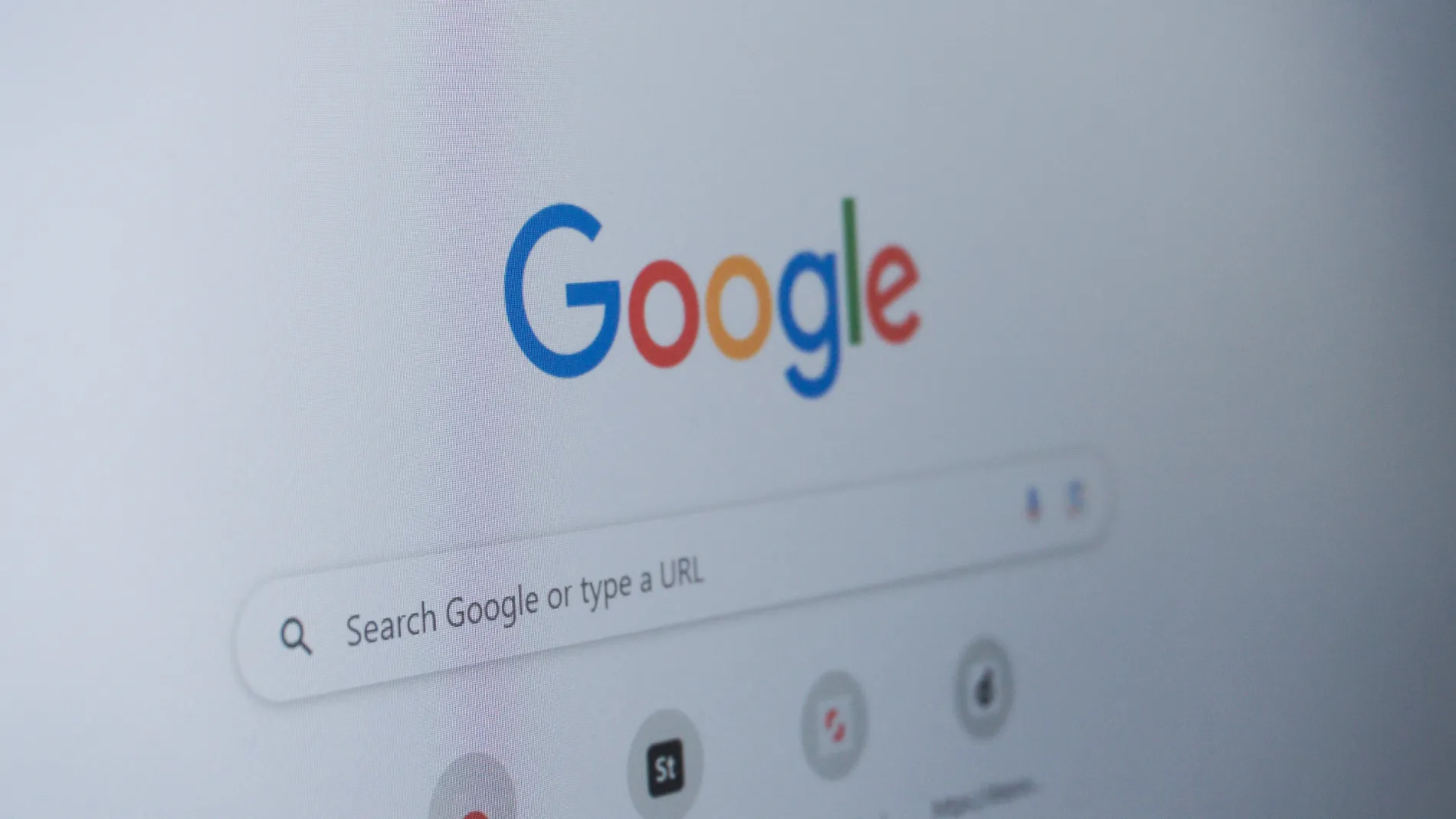
Looking Ahead: The Future Is AI-Driven
As Google prepares for what Pichai describes as “much innovation ahead,” the essence of search is expected to undergo profound changes. By early 2025, Google Search aims to handle more complex inquiries with unprecedented accuracy and depth, moving beyond the era of simple keyword searches into a more intuitive, AI-driven experience.
This evolution speaks to a broader technological transformation where AI does not just support existing structures but redefines them. As Google leads this charge, the interplay between human creativity and machine efficiency will continue to be a critical focal point, shaping the future of information consumption.
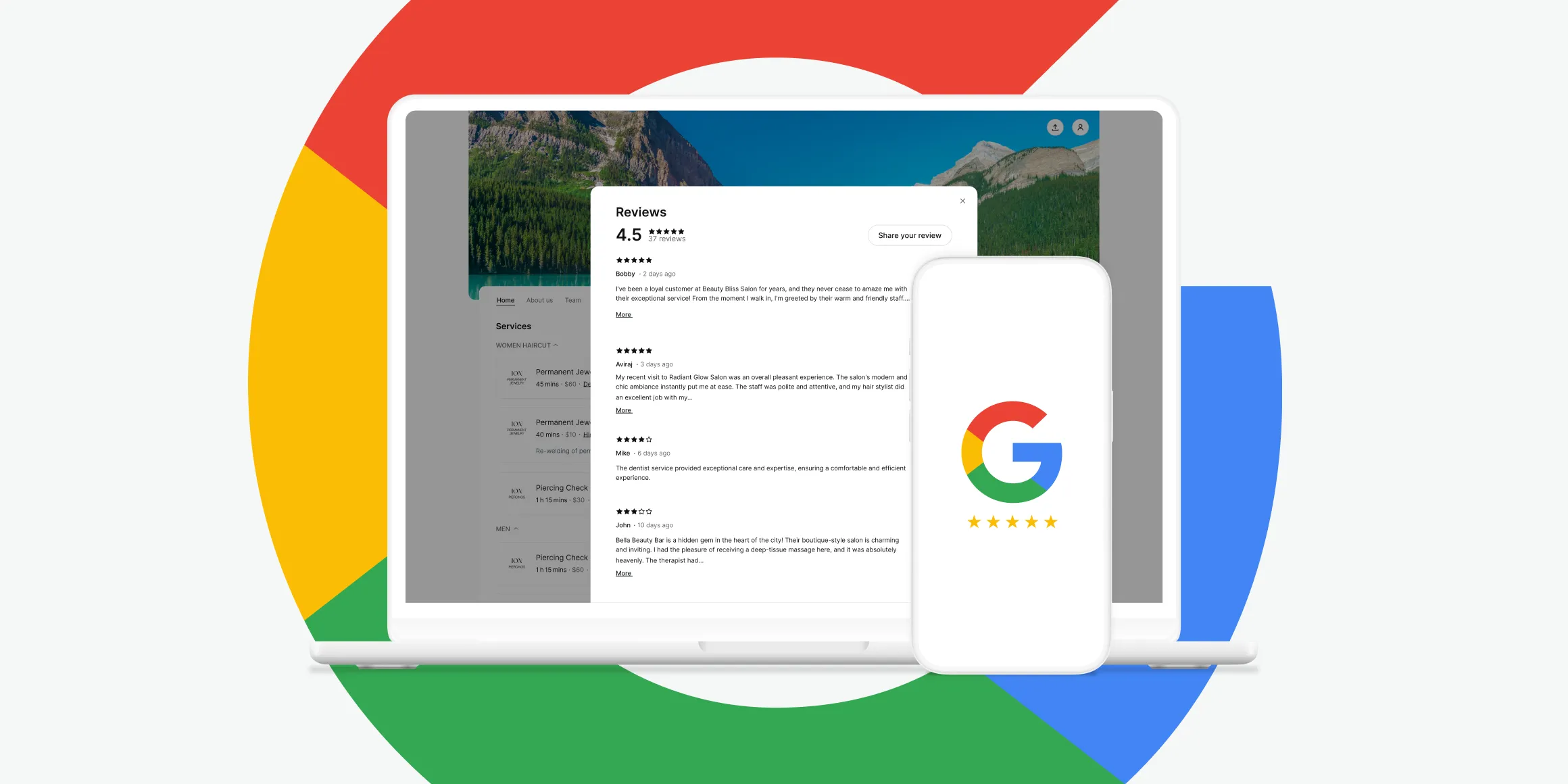
In conclusion, Sundar Pichai’s vision for Google Search portrays a future where AI enhances our ability to navigate vast amounts of information, making search more intuitive and insightful. As we move towards this future, the challenge for Google will lie in balancing innovation with its implications for the digital ecosystem, ensuring that advancements in AI continue to empower rather than undermine the human elements of creativity and intellectual engagement.

